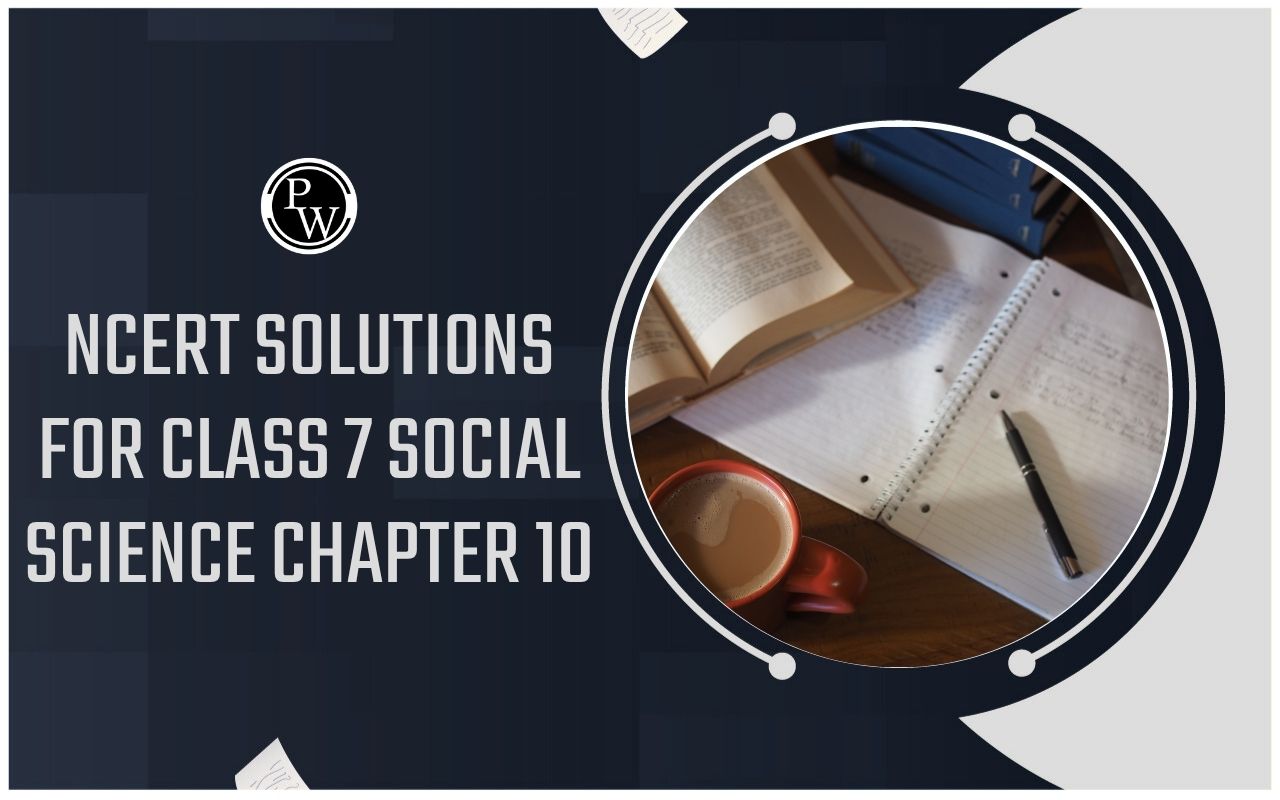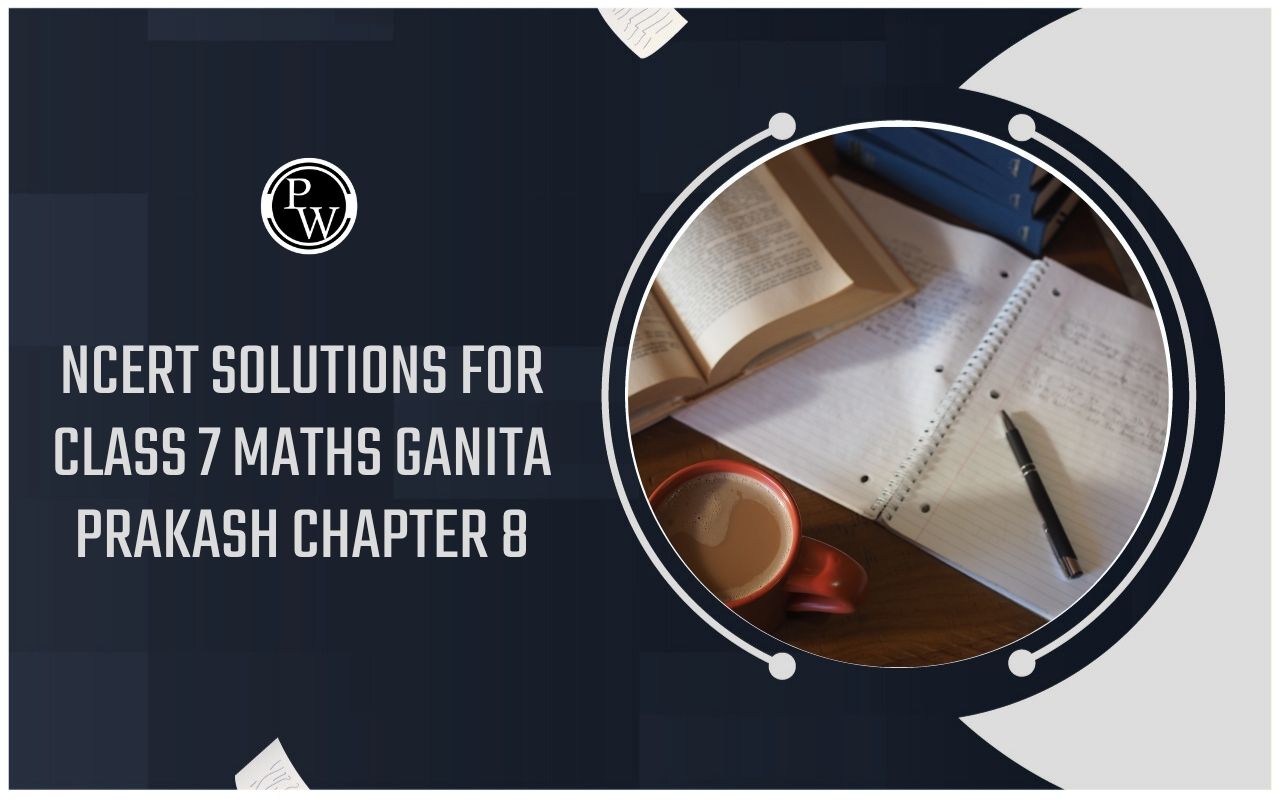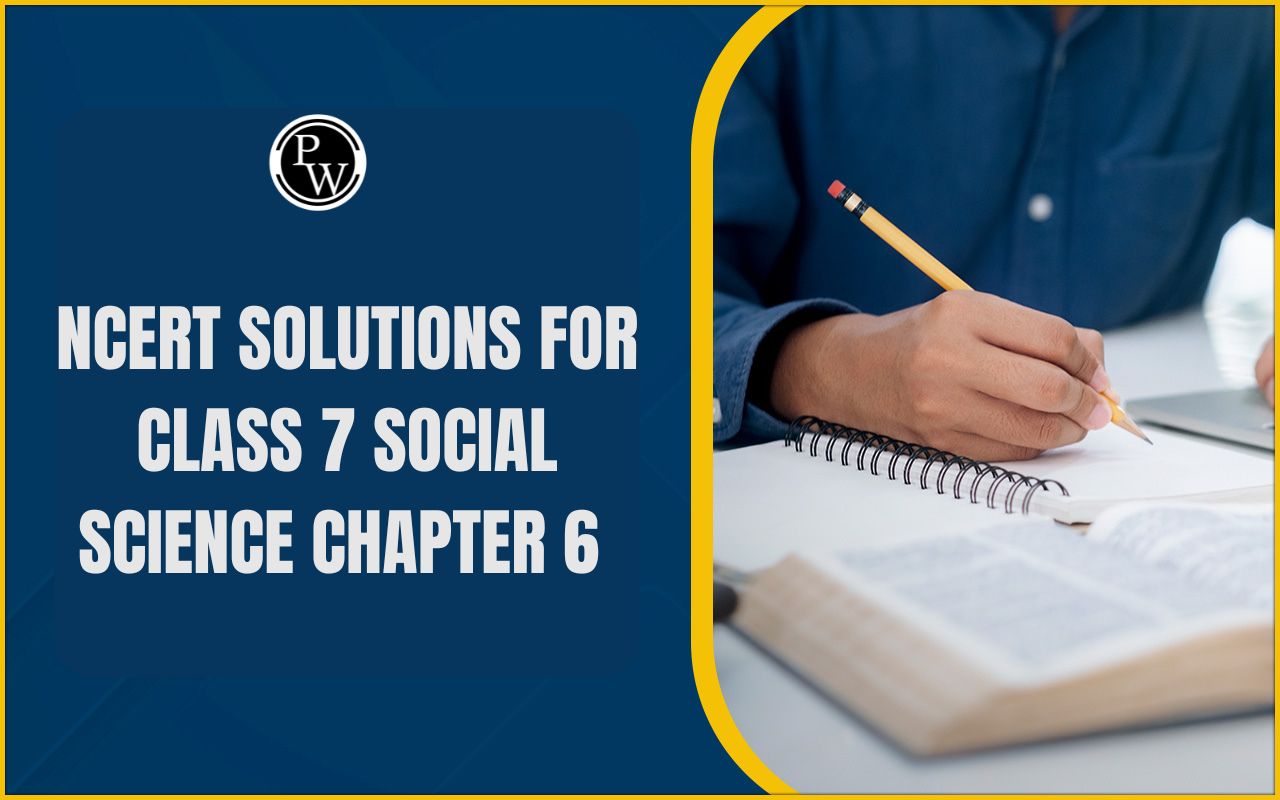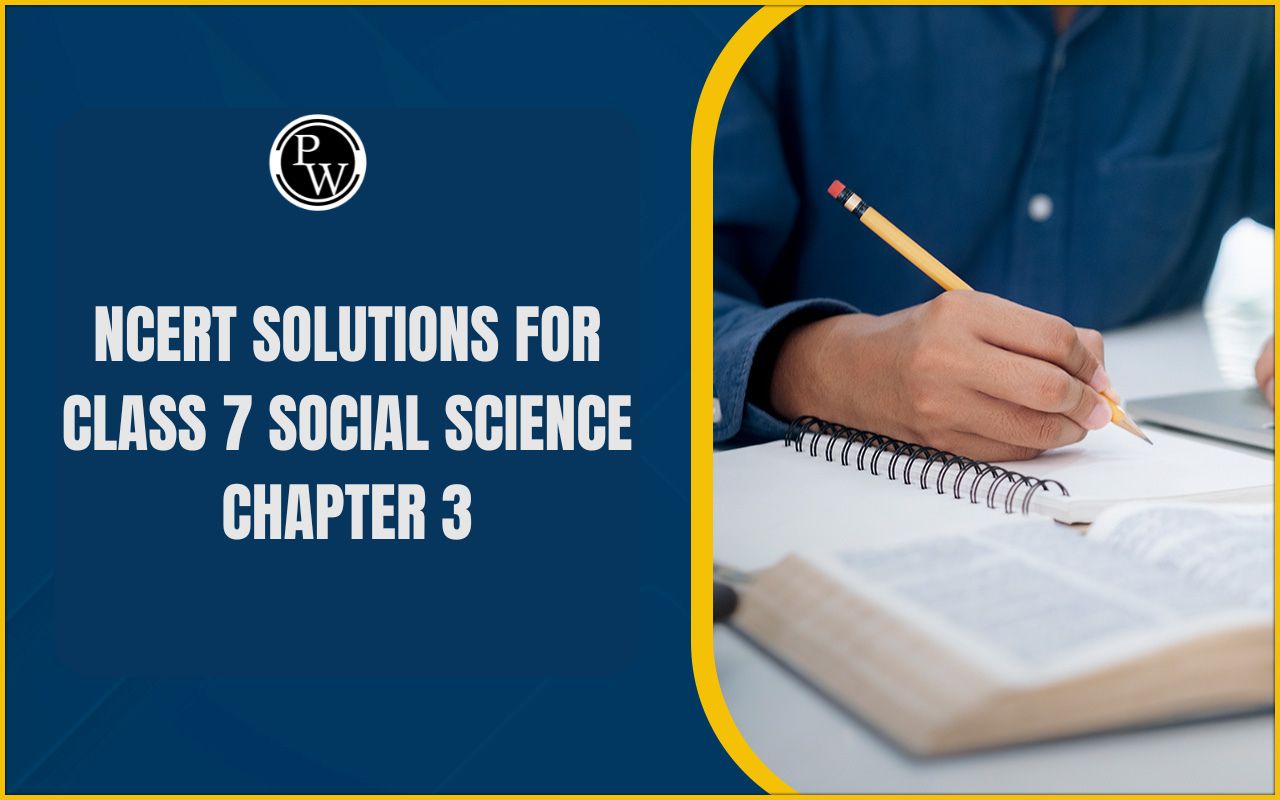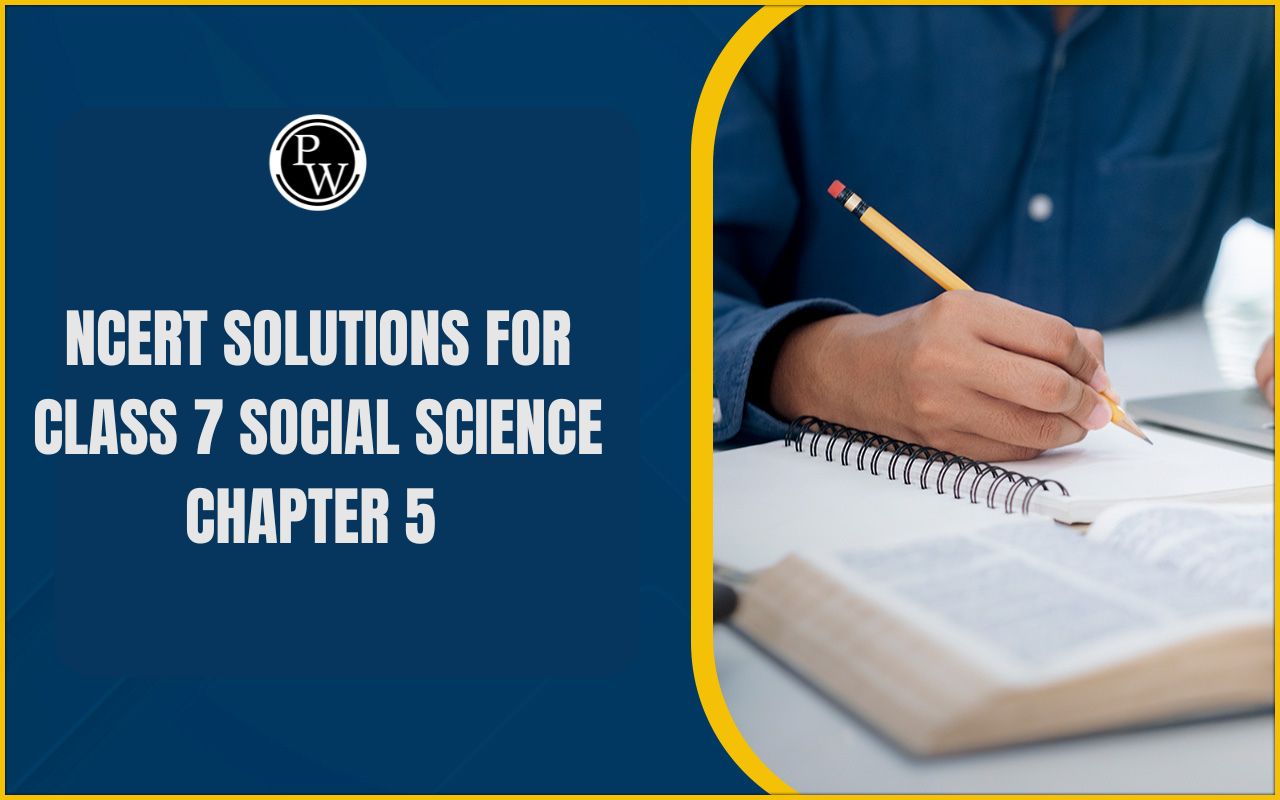
NCERT Solutions for Class 7 Social Science History Chapter 1
NCERT Solutions for Class 7 Social Science History Chapter 1: NCERT Solutions for Class 7 History Chapter 1 Tracing Changes Through A Thousand Years are created by our Social Science experts according to the latest CBSE 2023-24 syllabus. Our experts have combined all the key information from lengthy paragraphs in the textbook for this chapter so that students get simple answers to the NCERT questions. Students can find all the NCERT Solutions for Class 7 History Chapter 1 on our website. Additionally, they can access NCERT Solutions for Class 7 Social Science History Chapter 1 PDFNCERT Solutions for Class 7 Social Science History Chapter 1 Overview
NCERT Solutions for Class 7 History Chapter 1 provides detailed information about our past heritage. This knowledge of the past century helps students understand contemporary issues. Class 7 History Chapter 1 enhances our understanding of important historical events and movements, particularly in the last 100 years or more. This enables Class 7 students to develop respect and acknowledgement for modern issues. Studying Class 7 SST History, Chapter 1 empowers students to gain insights into the past and understand its relevance to the present.| CBSE Syllabus Class 7 | |
| CBSE Class 7 English Syllabus | CBSE Class 7 Math Syllabus |
| CBSE Class 7 Social Science Syllabus | CBSE Class 7 Science Syllabus |
NCERT Solutions for Class 7 Social Science History Chapter 1 Tracing Changes Through a Thousand Years
1. Who was considered a “foreigner” in the past? Ans: In the past, anyone who was alien to a certain society was called a foreigner. 2. State whether true or false: (a) We do not find inscriptions for the period after 700. Ans: False (b) The Marathas asserted their political importance during this period. Ans: True (c) Forest-dwellers were sometimes pushed out of their lands with the spread of agricultural settlements. Ans: True (d) Sultan Ghiyasuddin Balban controlled Assam, Manipur and Kashmir. Ans: False3. Fill in the blanks: (a) Archives are places where _______ are kept. Ans: Archives are places where manuscripts are kept. (b) ______ was a fourteenth-century chronicler. Ans: Ziyauddin Barani was a fourteenth-century chronicler. (c) __, ___, ___, ___ and ___ were some of the new crops introduced into the subcontinent during this period. Ans: Potatoes, corn, chillies, tea and coffee were some of the new crops introduced into the subcontinent during this period. 4. List some of the technological changes associated with this period. Ans: Some of the technological changes associated with this period were as follows:
- The Persian wheel for irrigation
- The spinning wheel in weaving
- The Firearms in combat
- The inclusion of new deities in Hinduism
- The construction of temples by Royals
- The growth in importance of the priests
- The emergence of bhakti for a loving personal deity that people could reach out to without the aid of priests or elaborate rituals
- Conversion of Indians to other religions by foreigners
- Manuscripts were written with hand
- There were significant differences between any two copies
- It was difficult to read handwritten manuscripts
- The scribes who copied them also introduced changes
- The Historians have to read different versions of the same text to guess the originality
Benefits of NCERT Solutions for Class 7 Social Science History Chapter 1
NCERT solutions for Class 7 Social Science History Chapter 1 offer numerous benefits for students. These solutions are specifically designed to complement the curriculum prescribed by CBSE in India.- Aligned with Curriculum: NCERT solutions are designed to align with the curriculum prescribed by educational boards. For Class 7, these solutions adhere to the syllabus set by the respective education boards, ensuring that students cover all the necessary topics and concepts.
- Clarity of Concepts: NCERT solutions are written in a clear and concise manner, helping students understand complex concepts with ease. The step-by-step solutions provide a detailed explanation of each problem, aiding in conceptual clarity.
- Comprehensive Coverage: NCERT solutions cover the entire syllabus comprehensively. Each chapter is broken down into subtopics, and solutions are provided for each exercise and question in a systematic manner. This ensures that students do not miss any important concept or topic.
- Practice Material: NCERT solutions include a variety of practice questions and exercises. This allows students to reinforce their understanding of the subject by solving different types of problems. The practice material is crafted to enhance problem-solving skills.
- Exam Preparation: Using NCERT solutions can be beneficial for exam preparation. The solutions provide a solid foundation for understanding the topics that are likely to be covered in examinations. Students can use these solutions as a reference while revising for exams.
- Structured Learning: The solutions are structured in a way that promotes a systematic approach to learning. The organisation of topics and concepts helps students build a logical sequence of understanding, making it easier to connect different ideas.
- Quality Content: NCERT is known for producing high-quality educational content. The solutions are prepared by experienced educators and subject matter experts, ensuring accuracy and reliability. Students can rely on the content to be trustworthy and in line with the prescribed curriculum.
- Encourages Self-Study: The step-by-step solutions provided in NCERT guides encourage self-study. Students can attempt the problems independently, refer to the solutions for guidance, and assess their understanding. This promotes a sense of self-reliance in learning.
- Accessible Language: The language used in NCERT solutions is student-friendly and accessible. The content is written in a way that is easy to comprehend, making it suitable for students of various learning abilities.
- Supplementary Learning Resources: NCERT solutions can be used alongside other learning resources to enhance the overall learning experience. They serve as a foundational resource, and students can explore additional materials to delve deeper into specific topics.
How to Prepare With NCERT Solutions for Class 7 Social Science History Chapter 1
For Class 7 students studying Social Science, History Chapter 1 titled "Tracing Changes Through a Thousand Years" serves as an introduction to the historical journey of India. To ace this chapter and understand the nuances of the historical narrative, students can leverage NCERT solutions as an invaluable resource for effective preparation.- Understand the Syllabus and Chapter Objectives: Before delving into the NCERT solutions, it's crucial to have a clear understanding of the syllabus and the specific objectives of Chapter 1. This chapter focuses on the changes that occurred in India over a thousand years, spanning from the eighth to the eighteenth century. It explores political, economic, social, and cultural transformations, laying the foundation for a more nuanced understanding of Indian history.
- Read the Chapter Thoroughly: Begin your preparation by reading the chapter thoroughly. Understand the key concepts, events, and historical developments. Take notes on important dates, personalities, and the cause-and-effect relationships that shaped India during this millennium. A solid grasp of the chapter content is essential before attempting the exercises provided.
- Utilise NCERT Solutions: NCERT solutions for Class 7 Social Science History Chapter 1 offer detailed and step-by-step explanations for each exercise and question in the textbook. These solutions are designed to provide clarity and deepen the understanding of historical events. Use these solutions to cross-verify your answers, identify any mistakes, and learn the correct approach to solving problems.
- Engage in Conceptual Learning: Rather than memorising facts, focus on understanding the concepts and themes presented in the chapter. Use NCERT solutions not only to find correct answers but also to gain insights into the underlying historical principles. This approach will enhance your ability to analyse and interpret historical events, a crucial skill in the study of history.
- Solve Additional Questions: In addition to the exercises provided in the textbook, explore additional questions and problems related to the chapter. This will help you reinforce your understanding and develop a broader perspective on the historical period under consideration. Online platforms and reference books may offer supplementary questions that align with the NCERT curriculum.
- Create Visual Aids: History often involves complex timelines and interconnected events. Create visual aids such as timelines, charts, and concept maps to organise information and make it easier to recall. Use the NCERT solutions to validate and enhance your visual representations, ensuring accuracy and completeness.
- Collaborate and Discuss: Engage in collaborative learning by discussing the chapter with classmates or teachers. Share your insights, clarify doubts, and learn from the perspectives of others. This interactive approach can provide valuable inputs and deepen your comprehension of historical narratives.
- Regular Revision: Consistent revision is key to retaining historical information. Periodically revisit the chapter and use NCERT solutions to reinforce your learning. This practice will not only solidify your understanding but also help you identify areas that may require further attention.
NCERT Solutions for Class 7 Social Science History Chapter 1 FAQs
What are the critical topics in NCERT solutions Class 7 Social Science Our Pasts 2 Chapter 1?
Critical topics in NCERT solutions Class 7 Social Science Our Pasts 2 Chapter 1 include understanding the concept of 'Tracing Changes Through a Thousand Years,' exploring historical sources, and examining the significant developments in mediaeval India.
What is the first chapter of history class 7?
The first chapter of history class 7 is titled 'Tracing Changes Through a Thousand Years' in the NCERT textbook, Our Pasts 2.
How is the study of time carried on by historians Class 7?
Historians study time by analysing historical sources, artefacts, and written records. They critically evaluate evidence to reconstruct and understand past events and developments.
What were the new technologies and crops that came to the Indian subcontinent during the mediaeval period?
During the mediaeval period, new technologies like the spinning wheel and crops like maize and potatoes were introduced to the Indian subcontinent, influencing agricultural practices and daily life.
What is an archive in history class 7 NCERT?
In history class 7 NCERT, an archive refers to a collection of historical documents, records, and sources that provide valuable information for researchers and historians studying the past.
🔥 Trending Blogs
Talk to a counsellorHave doubts? Our support team will be happy to assist you!

Check out these Related Articles
Free Learning Resources
PW Books
Notes (Class 10-12)
PW Study Materials
Notes (Class 6-9)
Ncert Solutions
Govt Exams
Class 6th to 12th Online Courses
Govt Job Exams Courses
UPSC Coaching
Defence Exam Coaching
Gate Exam Coaching
Other Exams
Know about Physics Wallah
Physics Wallah is an Indian edtech platform that provides accessible & comprehensive learning experiences to students from Class 6th to postgraduate level. We also provide extensive NCERT solutions, sample paper, NEET, JEE Mains, BITSAT previous year papers & more such resources to students. Physics Wallah also caters to over 3.5 million registered students and over 78 lakh+ Youtube subscribers with 4.8 rating on its app.
We Stand Out because
We provide students with intensive courses with India’s qualified & experienced faculties & mentors. PW strives to make the learning experience comprehensive and accessible for students of all sections of society. We believe in empowering every single student who couldn't dream of a good career in engineering and medical field earlier.
Our Key Focus Areas
Physics Wallah's main focus is to make the learning experience as economical as possible for all students. With our affordable courses like Lakshya, Udaan and Arjuna and many others, we have been able to provide a platform for lakhs of aspirants. From providing Chemistry, Maths, Physics formula to giving e-books of eminent authors like RD Sharma, RS Aggarwal and Lakhmir Singh, PW focuses on every single student's need for preparation.
What Makes Us Different
Physics Wallah strives to develop a comprehensive pedagogical structure for students, where they get a state-of-the-art learning experience with study material and resources. Apart from catering students preparing for JEE Mains and NEET, PW also provides study material for each state board like Uttar Pradesh, Bihar, and others
Copyright © 2026 Physicswallah Limited All rights reserved.


